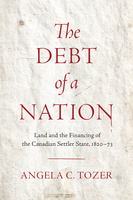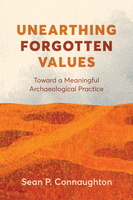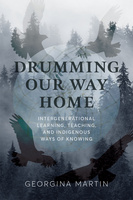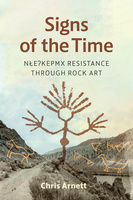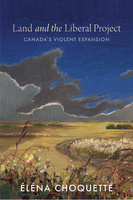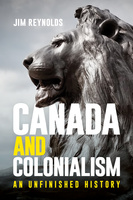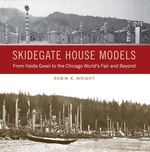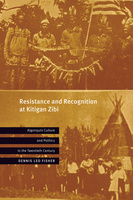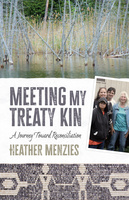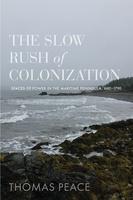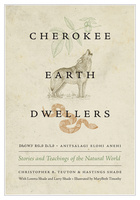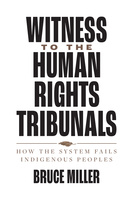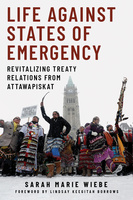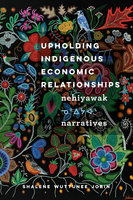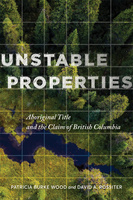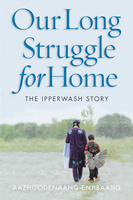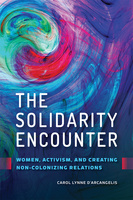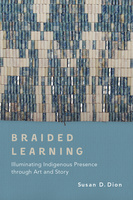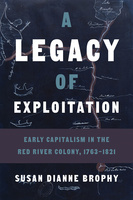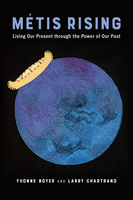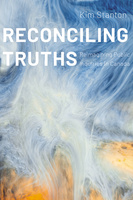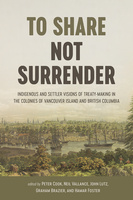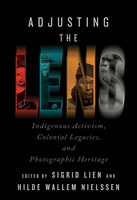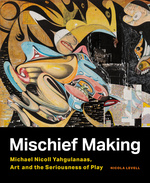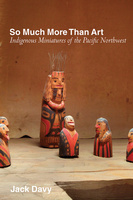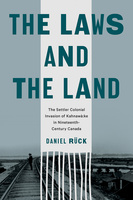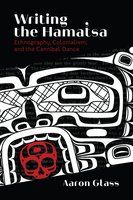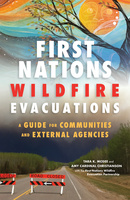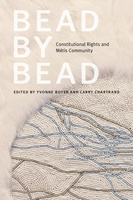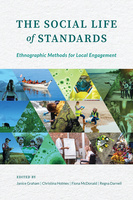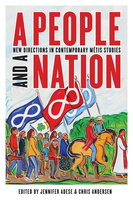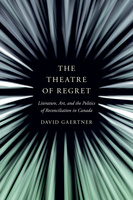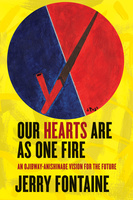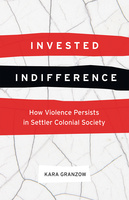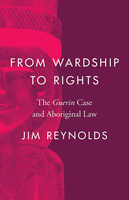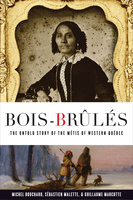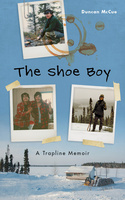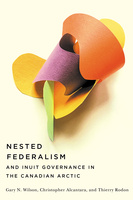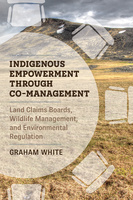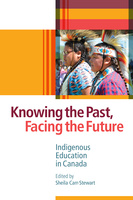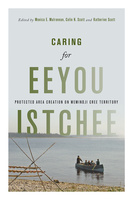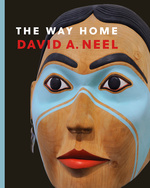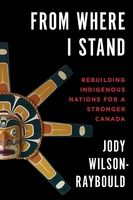Once upon This Land
Archaeology in British Columbia and the Stories It Tells
Once upon This Land is a much-needed overview of archaeology in British Columbia that introduces readers to the fascinating evidence of human activities in this region from the last ice age up to the present day.
Handing Over the Keys
Indigenous Peoples and Carceral Injustice
Handing over the Keys explores the intergenerational impacts of carceral injustice on Indigenous peoples and suggests policy approaches that will disrupt the harm.
The Debt of a Nation
Land and the Financing of the Canadian Settler State, 1820–73
The Debt of a Nation reveals not only the intimate relationship between public debt financing and colonization but also its continuing implications for contemporary Canadian politics.
After Redress
Japanese Canadian and Indigenous Struggles for Justice
After Redress is an innovative and critical examination of continuing calls for justice in the wake of state redress and reconciliation agreements.
Unearthing Forgotten Values
Toward a Meaningful Archaeological Practice
Unearthing Forgotten Values offers a practical corrective that restores human values to commercial archaeology by putting Indigenous communities first.
Protecting Indigenous Knowledge and Heritage, New Edition
A Canadian Obligation
Against the backdrop of the United Nations Declaration on the Rights of Indigenous Peoples, Protecting Indigenous Knowledge and Heritage examines past and emerging issues in the recognition of Indigenous inherent human rights and knowledge within a Canadian legal context.
Drumming Our Way Home
Intergenerational Learning, Teaching, and Indigenous Ways of Knowing
Drumming Our Way Home takes readers on an autobiographical journey to recover Indigenous identity, demonstrating how storytelling – aided by a hand drum – can open up a new world of pedagogy and culture-based learning.
Signs of the Time
Nłeʔkepmx Resistance through Rock Art
Drawing on a unique blend of Indigenous and Western sources, Signs of the Time explores Nłeʔkepmx rock art making to reveal the historical and cultural meaning beneath its beguiling imagery.
One Second at a Time
My Story of Pain and Reclamation
A deeply personal history of colonialism’s corrosive effects on an Ojibway-Anishinabe woman who survives a traumatic childhood, becomes a teen mother, and eventually escapes unrelenting domestic violence to find hope and healing, dedicating herself to helping women and children like her former self.
Land and the Liberal Project
Canada’s Violent Expansion
Land and the Liberal Project explores the “improving” ideas that informed the expansion of Canada from coast to coast, exposing the justifications for state violence and appropriation of Indigenous territory, thus challenging our assumptions about Canadian sovereignty.
Canada and Colonialism
An Unfinished History
Canada and Colonialism presents the history Canadians must reckon with before decolonization is possible, from the nation’s establishment as a settler colony to the discriminatory legacies still at work in our institutions and culture.
Skidegate House Models
From Haida Gwaii to the Chicago World's Fair and Beyond
This fascinating exploration into the history a nineteenth-century model of a Haida village, carved by Haida artists, offers insights not only into Pacific Northwest history but also into how the Haida represented their culture during a time when that culture threatened by colonial activity.
Resistance and Recognition at Kitigan Zibi
Algonquin Culture and Politics in the Twentieth Century
Resistance and Recognition at Kitigan Zibi illuminates the traditional values and cultural continuity underlying twentieth-century politics in the largest and oldest Algonquin reserve in Canada.
Meeting My Treaty Kin
A Journey toward Reconciliation
This intimate story of one settler’s journey toward reconciliation reveals the rich potential that comes from learning to listen and change – decolonization not as to-do list, but as a lived experience of taking one awkward step at a time.
The Slow Rush of Colonization
Spaces of Power in the Maritime Peninsula, 1680–1790
This history analyzes over one hundred years of complex interactions between the Mi’kmaw, Wabanaki, Peskotomuhkati, Wolastoqiyik, French, and English to show the continuity of Indigenous independence from the European newcomers.
The Fire Still Burns
Life In and After Residential School
The Fire Still Burns is a tale of survival and redemption through which Squamish Elder Sam George recounts his residential school experience and how it led to a life of addiction, violence, and imprisonment until he found the courage to face his past and begin healing.
Cherokee Earth Dwellers
Stories and Teachings of the Natural World
Cherokee Earth Dwellers offers a rich understanding of nature grounded in Cherokee creature names, oral traditional stories, and reflections of knowledge holders.
Witness to the Human Rights Tribunals
How the System Fails Indigenous Peoples
Witness to the Human Rights Tribunals offers a behind-the-scenes account of the difficulties facing Indigenous people in human rights tribunals, and the struggles of experts to keep their own testimony from being undermined.
Life against States of Emergency
Revitalizing Treaty Relations from Attawapiskat
Life against States of Emergency responds to the central question Attawapiskat chief Theresa Spence asked in a high-profile ceremonial fast: What does it mean to be in a treaty relationship today?
Upholding Indigenous Economic Relationships
Nehiyawak Narratives
Upholding Indigenous Economic Relationships investigates Indigenous economic theories and relationships through the lenses of settler colonial exploitation and Indigenous resurgence.
Unstable Properties
Aboriginal Title and the Claim of British Columbia
Unstable Properties convincingly argues that the so-called land question in British Columbia cannot be resolved without understanding the fundamentally unstable ideological foundation of land and title arrangements on which the province rests.
Our Long Struggle for Home
The Ipperwash Story
In this disquieting story of broken promises and thwarted justice, the Anishinaabe of Stoney Point tell of the long struggle to reclaim their ancestral homeland, both before and after the Ipperwash crisis.
The Solidarity Encounter
Women, Activism, and Creating Non-Colonizing Relations
This compassionate yet unflinching exposé of the pitfalls of Indigenous–non-Indigenous solidarity work offers a constructive framework for non-colonizing solidarity that can be applied in any context of unequal power.
Braided Learning
Illuminating Indigenous Presence through Art and Story
In Braided Learning, Lenape-Potawatomi educator Susan Dion inspires engagement with the histories and perspectives of Indigenous peoples, cultivating capacities for understanding, attunement, and respect.
A Legacy of Exploitation
Early Capitalism in the Red River Colony, 1763–1821
A Legacy of Exploitation recasts the Hudson’s Bay Company’s experiment at Red River as a reaction to Indigenous peoples’ autonomy, challenging collective historical fantasies of Canada as a glorious nation of adventurers.
Métis Rising
Living Our Present Through the Power of Our Past
Métis Rising brings together a vibrant collection of essays on history, politics, and culture that celebrate the resilience of Métis identity.
Reconciling Truths
Reimagining Public Inquiries in Canada
Reconciling Truths is a forthright examination of commissions of inquiry that demonstrates the need for astute leadership and an engaging process if they are to lead to meaningful change.
Beyond Rights
The Nisg̱a’a Final Agreement and the Challenges of Modern Treaty Relationships
Beyond Rights examines the legal, political, and cultural implications of the groundbreaking process of negotiating the Nisga’a treaty.
To Share, Not Surrender
Indigenous and Settler Visions of Treaty Making in the Colonies of Vancouver Island and British Columbia
To Share, Not Surrender presents multiple views and lived experience of the treaty-making process and its repercussions in the Colonies of Vancouver Island and British Columbia, and publishes, for the first time, the Vancouver Island Treaties in First Nations languages.
Adjusting the Lens
Indigenous Activism, Colonial Legacies, and Photographic Heritage
Adjusting the Lens explores and celebrates decolonizing strategies and practices that confront the ways the photographic record of Indigenous peoples has been shaped by the colonial imagination.
Mischief Making
Michael Nicoll Yahgulanaas, Art, and the Seriousness of Play
In a gorgeously illustrated exploration of the art of Michael Nicoll Yahgulanaas, Mischief Making demonstrates how playful and punning gestures can shed light on serious subjects.
So Much More Than Art
Indigenous Miniatures of the Pacific Northwest
So Much More Than Art reveals the fascinating practice of miniaturization in Indigenous Northwest Coast art as a subtle form of communication in the face of oppressive colonization.
The Laws and the Land
The Settler Colonial Invasion of Kahnawà:ke in Nineteenth-Century Canada
The Laws and the Land, an original and impassioned account of the history of the relationship between Canada and Kahnawà:ke, reveals the clash of settler and Indigenous legal traditions and the imposition of settler colonial law on Indigenous peoples and land.
Writing the Hamat'sa
Ethnography, Colonialism, and the Cannibal Dance
Writing the Hamat̓sa critically surveys more than two centuries worth of published, archival, and oral sources to trace the attempted prohibition, intercultural mediation, and ultimate survival of one of Canada’s most iconic Indigenous ceremonies.
First Nations Wildfire Evacuations
A Guide for Communities and External Agencies
Based on the experiences of evacuees from seven First Nations communities, this book offers guidance to Indigenous communities and external agencies on how to successfully plan for and carry out wildfire evacuations.
Bead by Bead
Constitutional Rights and Métis Community
Bead by Bead lays bare the failure of judicial doctrine and government policy to address Métis rights, and offers constructive insights on ways to advance reconciliation.
The Social Life of Standards
Ethnographic Methods for Local Engagement
The Social Life of Standards reveals how political and technical tools for organizing society are developed, applied, subverted, contested, and reassembled as local communities interact with standards created by external forces.
A People and a Nation
New Directions in Contemporary Métis Studies
In A People and a Nation, the authors, most of whom are themselves Metis, offer readers a set of lenses through which to consider the complexity of historical and contemporary Métis nationhood and peoplehood.
The Theatre of Regret
Literature, Art, and the Politics of Reconciliation in Canada
The Theatre of Regret reveals the role that Indigenous and allied literatures play in challenging state-centred discourses of reconciliation in Canada.
Our Hearts Are as One Fire
An Ojibway-Anishinabe Vision for the Future
Reframing Manitou Aki (Creator's Land) history from the perspective of the Ojibway-Anishinabe, Our Hearts Are as One Fire shares a vision for the leaders of today and tomorrow.
Invested Indifference
How Violence Persists in Settler Colonial Society
Invested Indifference exposes the tenacity of violence against Indigenous people, arguing that some lives are made to matter – or not – depending on their relation to the settler-colonial nation state.
From Wardship to Rights
The Guerin Case and Aboriginal Law
This thoughtful and engaging examination of the Guerin case shows how it changed the relationship between governments and Indigenous peoples from one of wardship to one based on legal rights.
Bois-Brûlés
The Untold Story of the Métis of Western Québec
Bois-Brûlés shatters the prevailing orthodoxy that Métis communities are found solely in western Canada by demonstrating that a distinct community emerged in the fur trade frontier of Quebec in the early nineteenth century and persists to this day.
The Shoe Boy
A Trapline Memoir
The Shoe Boy is an evocative exploration of Indigenous identity and connection to the land, expressed in guise of a unique coming-of-age memoir set on a trapline in northern Quebec.
Nested Federalism and Inuit Governance in the Canadian Arctic
Nested Federalism and Inuit Governance in the Canadian Arctic explores how three northern regions are reformulating the relationship between Indigenous peoples and the state, and transforming Canadian federalism in the process.
Indigenous Empowerment through Co-management
Land Claims Boards, Wildlife Management, and Environmental Regulation
This book is a clear, compelling, and evidence-based assessment of the effectiveness of co-management boards in providing Indigenous peoples with genuine influence over land and wildlife decisions affecting their traditional territories.
Knowing the Past, Facing the Future
Indigenous Education in Canada
Knowing the Past, Facing the Future offers a sweeping account of Indigenous education in Canada, from the first treaty promises and the failure of government-run schools to illuminating discussions of what needs to change now to work toward reconciliation.
Caring for Eeyou Istchee
Protected Area Creation on Wemindji Cree Territory
In Caring for Eeyou Istchee, Indigenous and non-Indigenous partners reveal how protected area creation presents a powerful vehicle for Indigenous stewardship, biological conservation, and cultural heritage protection.
The Way Home
Crafted from memories, legends, and art, this powerful memoir tells the uplifting story of an Indigenous man’s struggle to reconnect with his culture and walk in the footsteps of his father and the generations of Kwakwa̱ka̱’wakw artists that came before him.
From Where I Stand
Rebuilding Indigenous Nations for a Stronger Canada
Jody Wilson-Raybould outlines in impassioned, inspiring prose the actions that must be taken by governments, Indigenous Nations, and all Canadians to achieve true reconciliation in this country.

